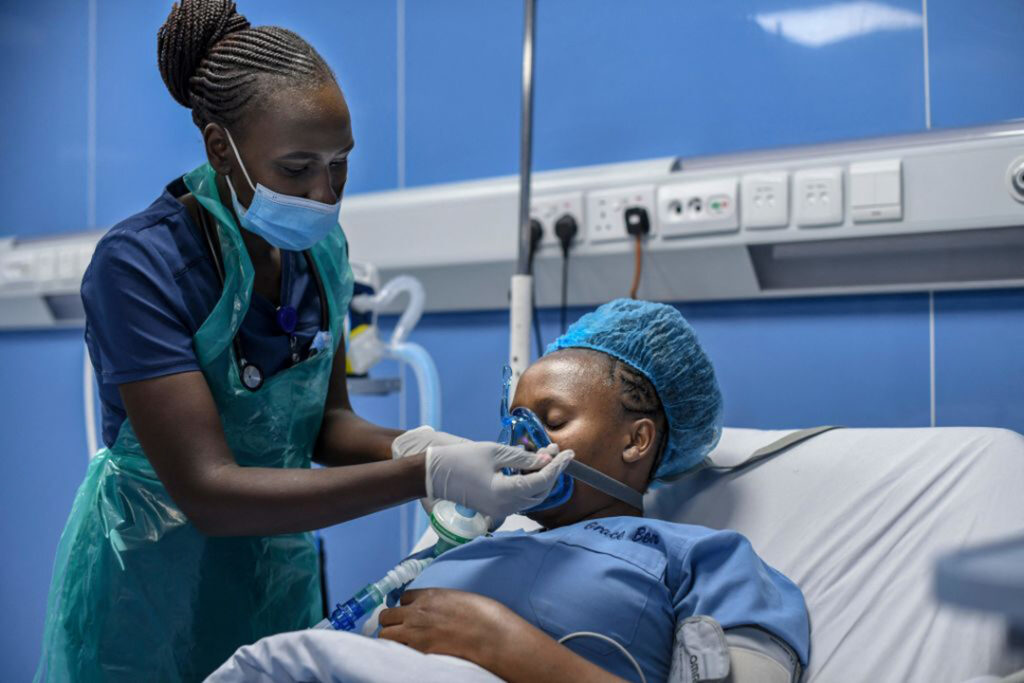ADF STAFF
After weathering four waves of COVID-19 infections, African nations are trying to take the lessons learned and use them to prepare health systems for the future.
“As long as we remain vigilant and we act intensively, the continent is on track for controlling the pandemic,” Dr. Matshidiso Moeti, director of the World Health Organization’s (WHO’s) Africa regional office, said during a recent press briefing.
As of mid-March, Africa has reported more than 11 million cases of COVID-19 and more than 250,000 deaths. However, studies have suggested, due to a lack of testing and surveillance, the actual caseload could be about six times higher and deaths could be three times higher.
Moeti and other public health experts say increased testing and surveillance will play a key role in tracking future COVID-19 outbreaks and responding to them quickly and effectively. She has compared that strategy to the WHO’s method of responding to Ebola outbreaks by testing in the immediate vicinity of an outbreak, isolating those who test positive and treating those who have been exposed.
The WHO and the Africa Centres for Disease Control and Prevention (Africa CDC) have promoted programs to distribute rapid antigen tests to community health workers continentwide as a way of improving Africa’s testing rate.
“I think we now know what works for prevention and what people should be doing,” Albert Tuyishime, head of diseases prevention and control at Rwanda’s Ministry of Health, told Nature Medicine. “We are keeping our surveillance on the same level as when we were at the peak of previous waves.”
Thanks to more than $15 billion invested to fight COVID-19 in Africa, nations across the continent added intensive care beds, medical oxygen supplies and protective equipment.
The supply of intensive care unit (ICU) beds in Africa has grown from 8 per million residents to 20 per million. Laboratories capable of testing for COVID-19 have grown from two to more than 900 over the past two years, Moeti said.
African nations must continue to invest in strengthening their health systems, Rwanda Health Minister Dr. Daniel Ngamije said during Moeti’s briefing.
Rwanda has won international praise for expanding its health care system by adding more ICUs, building more oxygen-generating facilities and developing a mobile isolation ward that can be used for localized outbreaks.
Rwanda also has invested in the local manufacture of protective equipment such as gowns and masks, Ngamije added.
South Africa has used its lessons from the pandemic to begin building a national health system, according to Sandile Buthelezi, director-general of South Africa’s National Department of Health.
Senegalese President Macky Sall, current chairman of the African Union (AU), has called for the continent to become self-reliant in pharmaceuticals and medical equipment. Before the pandemic, Africa imported 99% of its immunization treatments and the vast majority of protective gear and other equipment — a factor that left African nations competing with the rest of the world for crucial supplies when the pandemic first hit.
“Beyond the response to COVID, we need to maintain this dynamism by maintaining health issues on our agenda, in order to support the emergence of an African pharmaceutical industry that can meet our essential needs and face pandemics like HIV/AIDS, tuberculosis and malaria,” Sall said during a recent meeting of AU member countries.
Beyond medications and equipment, African nations also are pushing to invest in people as they prepare for future health emergencies, experts have said.
Dr. John Nkengasong, director of the Africa CDC, has said the continent needs about 6,000 epidemiologists to meet the demand of its 1.3 billion residents. That’s about four times the actual number of those specialists.
Dr. Christian Happi, director of Nigeria’s African Centre of Excellence for Genomics of Infectious Diseases, has called for the continent’s leaders to summon the talents of Africa’s diaspora to reinforce its response to COVID-19 and future crises.
“The future of Africa is inextricably related to its health infrastructure,” Happi said during a recent webinar. “We need to prepare today as if the next one (wave) is tomorrow. This needs to be on the front burner.”

